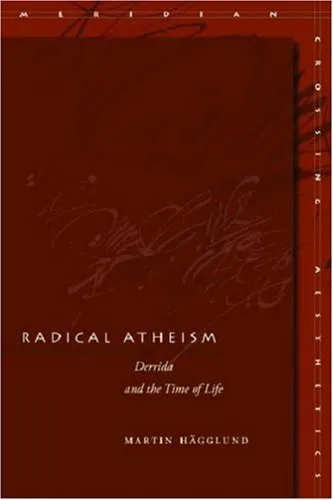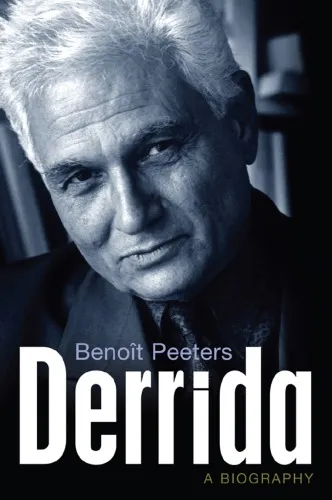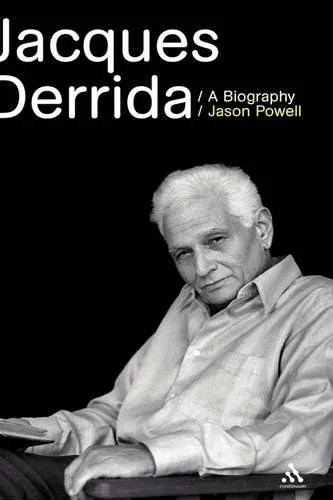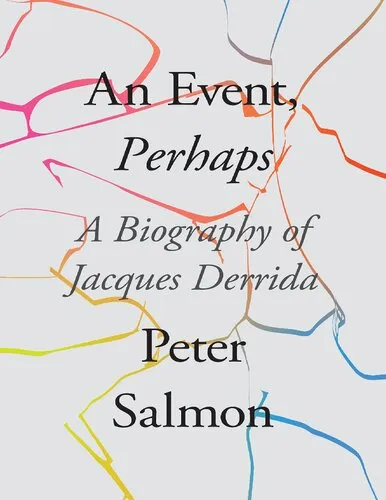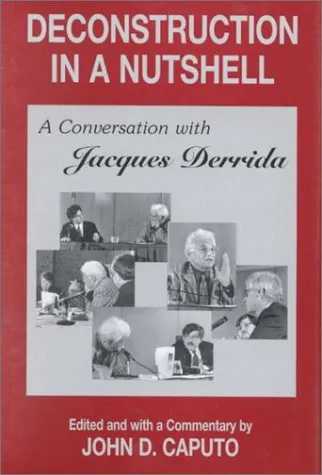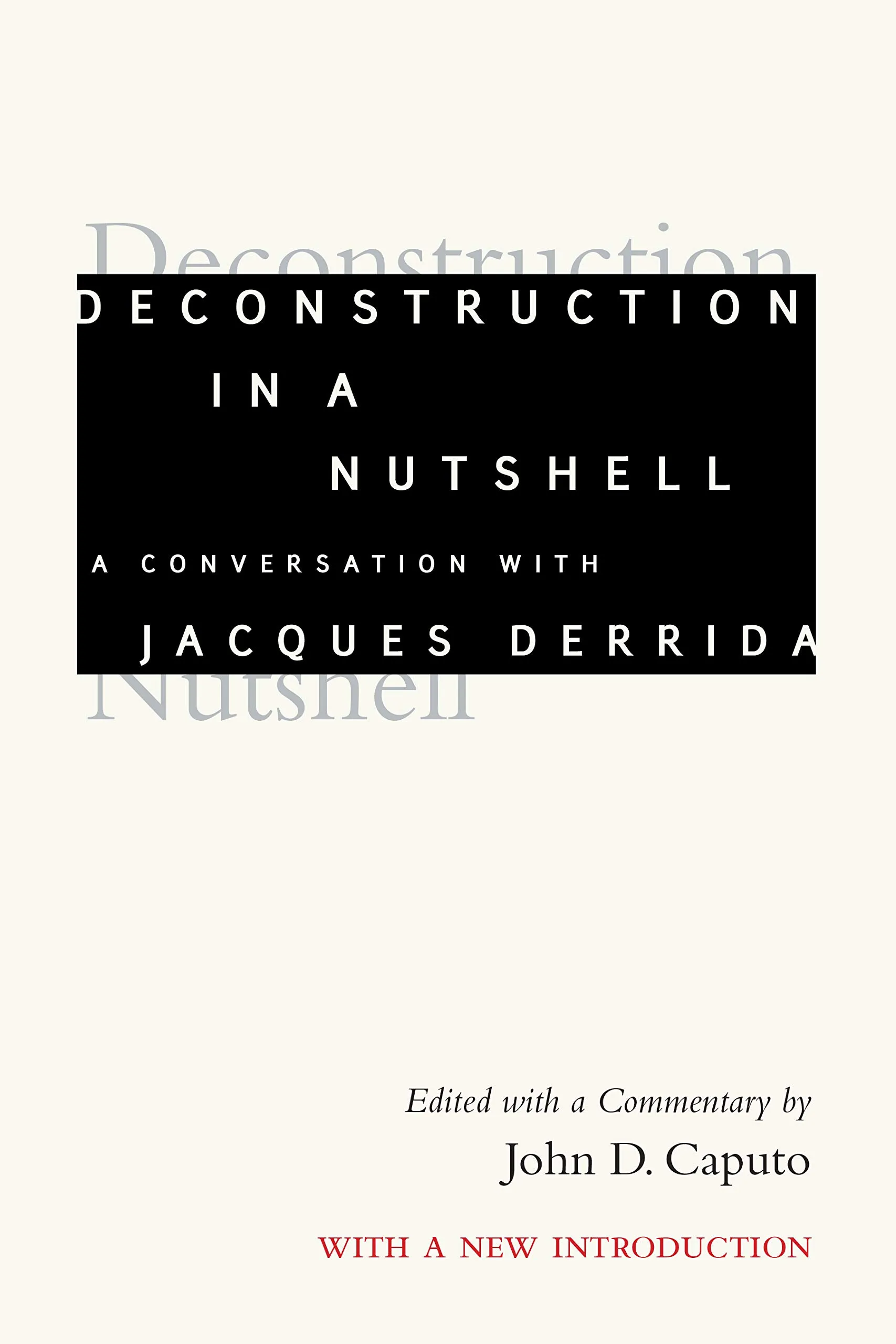Radical Atheism: Derrida and the Time of Life (Meridian: Crossing Aesthetics)
4.1
بر اساس نظر کاربران

شما میتونید سوالاتتون در باره کتاب رو از هوش مصنوعیش بعد از ورود بپرسید
هر دانلود یا پرسش از هوش مصنوعی 2 امتیاز لازم دارد، برای بدست آوردن امتیاز رایگان، به صفحه ی راهنمای امتیازات سر بزنید و یک سری کار ارزشمند انجام بدینکتاب های مرتبط:
Persian Summary
معرفی جامع کتاب 'Radical Atheism: Derrida and the Time of Life'
کتاب 'Radical Atheism: Derrida and the Time of Life' اثر مارتین هغلوند، پاسخی نوین و جسورانه به تأملات ژاک دریدا پیرامون زندگی، مرگ، و الحاد است. هگلوند با بهرهگیری از رویکردی دیالکتیکی، به بررسی مفاهیم اساسی نزد دریدا میپردازد و آنان را در پرتو انتقادات نوآورانه و رادیکالتر بازنگری میکند.
خلاصهای از کتاب
این کتاب در سه بخش اصلی تنظیم شده است: تأملات روی زمان و زندگی، تحلیلهای فلسفی و سیاسی، و نهایتاً نتیجهگیریهایی درباره معنا و فلسفه زندگی. هگلوند در بخش اول، به واکاوی مفهوم زمانبندی مرگ در نوشتههای دریدا میپردازد و به طور ویژه به نقش زندگی و زمان در فلسفه او توجه میکند. او استدلال میکند که دریدا چشماندازی از زندگی ارائه میدهد که به بقا و زوال، و همچنین به ناپایداری ذاتی ایجابات حیات توجه دارد.
نکات کلیدی
- تأکید بر همبستگی میان زندگی و فناپذیری در فلسفه دریدا.
- تحلیل ساختارگرایانه و غیرمتافیزیکی از زمان و مرگ.
- جلب توجه به الحاد رادیکال و خروج از سنتعرف جایگزینداری متافیزیکی.
نقلقولهای مشهور از کتاب
"در هر لحظه از زندگی، همواره در حال مرگیم، و این واقعیت به ما امکان میدهد تا در برابر وسوسه مطلقگرایی مقاومت کنیم و به پذیرش واپسین از فناپذیری برسیم."
"حقیقت زندگی در پذیرش و شناخت مرگ نهفته است، و نه در تلاش برای انکار یا فرا رفتن از آن."
چرا این کتاب مهم است؟
این کتاب به دلیل ارائه چشماندازی نوین و رادیکال به مباحثی همچون هستی، زمان، و زندگی، از اهمیت ویژهای برخوردار است. بهادادن به نگاهای غیرمتعارف به مفاهیم فلسفی و ترغیب به گفتگوهایی که مرزهای شناختی دانشهای انسانی را به چالش میکشد، از وجوه بارز این اثر است. در عصری که فلسفه و نظریههای جدید نیاز به بازخوانی و بازبینی دارند، کتاب هگلوند تابآوری تازهای به تحلیلهای فلسفی معاصر میبخشد.
Introduction to 'Radical Atheism: Derrida and the Time of Life'
Welcome to an exploration of 'Radical Atheism: Derrida and the Time of Life', a thought-provoking work by Martin Hagglund. The book provides a profound engagement with Jacques Derrida's philosophy, specifically focusing on the themes of life, time, and ethics. It delves deep into Derrida's concept of 'radical atheism' and challenges us to reconsider our understanding of life and mortality. This introduction offers a detailed summary, key takeaways, quotes, and the significance of this work.
Summary
'Radical Atheism' is an incisive critical analysis of Jacques Derrida's philosophical exploration of time and life. Martin Hagglund engages with Derrida's deconstructive approach to reveal how the concept of 'radical atheism' influences our understanding of temporality and existence. The book argues that Derrida's philosophy must be understood as radically atheistic, meaning that it posits the finitude of life as the condition for anything that matters. Unlike traditional atheism, which simply denies the existence of God, radical atheism insists on the inherent mortality and fragility of life as the foundation of ethical responsibility and freedom.
Hagglund discusses Derrida's interpretation of key themes such as autoimmunity, spectrality, and the messianic in order to demonstrate how they contribute to a theory of life grounded in temporal finitude. The book meticulously unpacks Derrida’s claim that life is always already constituted by the trace of death, suggesting that understanding this interplay is crucial for grasping the stakes of existence, responsibility, and justice.
Key Takeaways
- Radical atheism asserts that temporality and mortality are essential to the meaning of life.
- Derrida's notion of 'autoimmunity' illustrates how the conditions for life also entail susceptibility to death and destruction.
- Ethical responsibility arises from the acknowledgment of our finite nature and the temporal bonds we form.
- The book challenges the separation between atheism and religious thought, proposing a re-evaluation of faith and belief.
Famous Quotes from the Book
"To live as a mortal is to be exposed to others and to have a responsibility for what is to come."
"The radicality of atheism lies in its affirmation of life without recourse to a transcendent ground or promise of salvation."
Why This Book Matters
'Radical Atheism: Derrida and the Time of Life' is a crucial contribution to contemporary philosophical discourse. It not only broadens the interpretation of Derrida's thought but also stimulates critical discussions about existence, ethics, and the human condition. Hagglund's rigorous analysis compels readers to confront the paradoxes of lived experience, inviting them to rethink the implications of mortality for philosophical and ethical inquiry.
Furthermore, the book transcends traditional divisions between secular and religious thought by highlighting the intertwined nature of life and death. It encourages a nuanced understanding of how time structures our experiences and responsibilities. This work is essential reading for anyone interested in deconstruction, philosophy of time, or the intersections between life, death, and the ethical imperatives they engender.
دانلود رایگان مستقیم
شما میتونید سوالاتتون در باره کتاب رو از هوش مصنوعیش بعد از ورود بپرسید
دسترسی به کتابها از طریق پلتفرمهای قانونی و کتابخانههای عمومی نه تنها از حقوق نویسندگان و ناشران حمایت میکند، بلکه به پایداری فرهنگ کتابخوانی نیز کمک میرساند. پیش از دانلود، لحظهای به بررسی این گزینهها فکر کنید.
این کتاب رو در پلتفرم های دیگه ببینید
WorldCat به شما کمک میکنه تا کتاب ها رو در کتابخانه های سراسر دنیا پیدا کنید
امتیازها، نظرات تخصصی و صحبت ها درباره کتاب را در Goodreads ببینید
کتابهای کمیاب یا دست دوم را در AbeBooks پیدا کنید و بخرید
1395
بازدید4.1
امتیاز50
نظر98%
رضایتنظرات:
4.1
بر اساس 0 نظر کاربران
"کیفیت چاپ عالی بود، خیلی راضیام"
Questions & Answers
Ask questions about this book or help others by answering
No questions yet. Be the first to ask!
